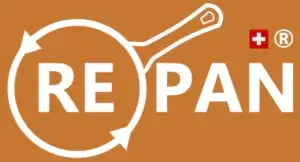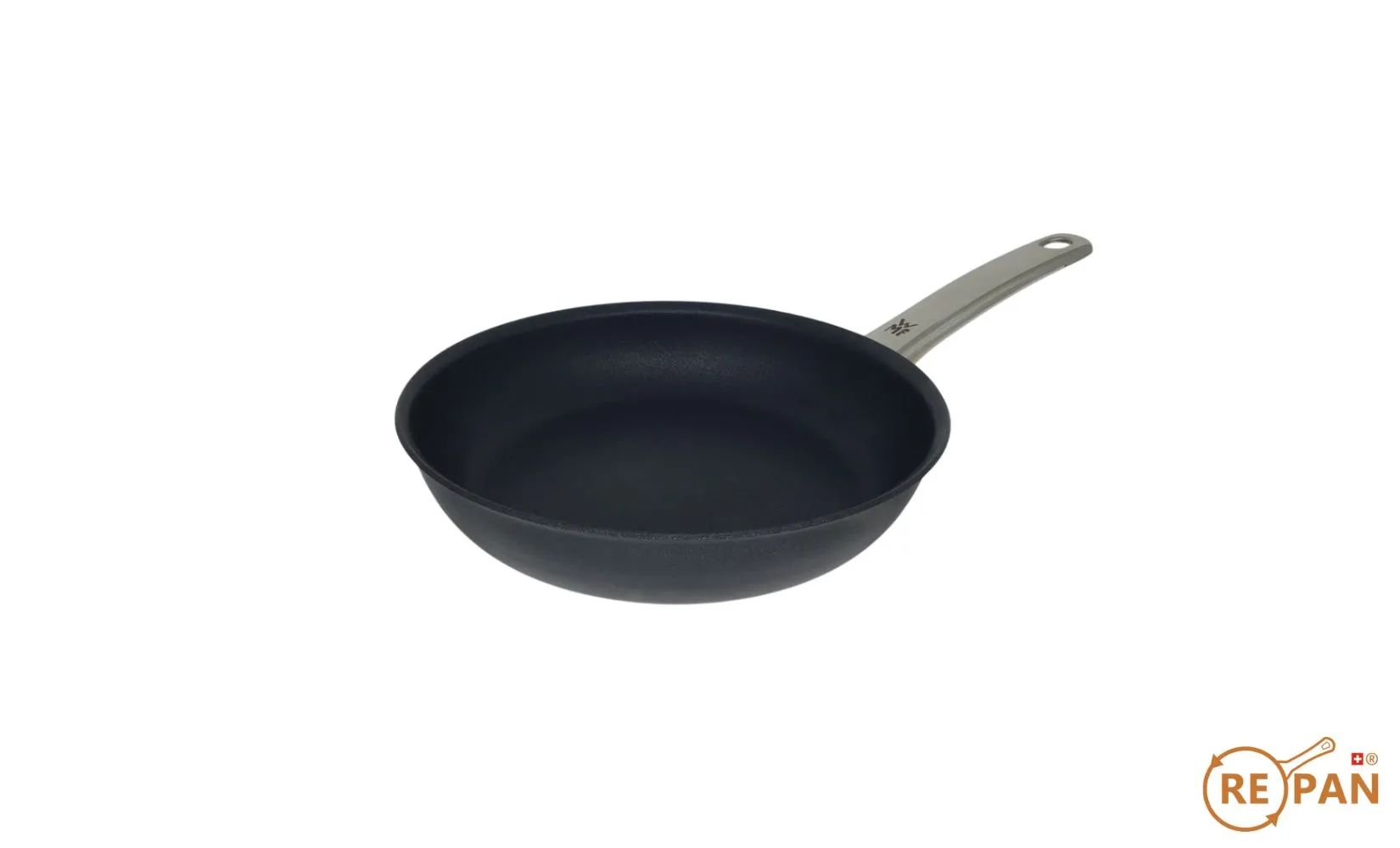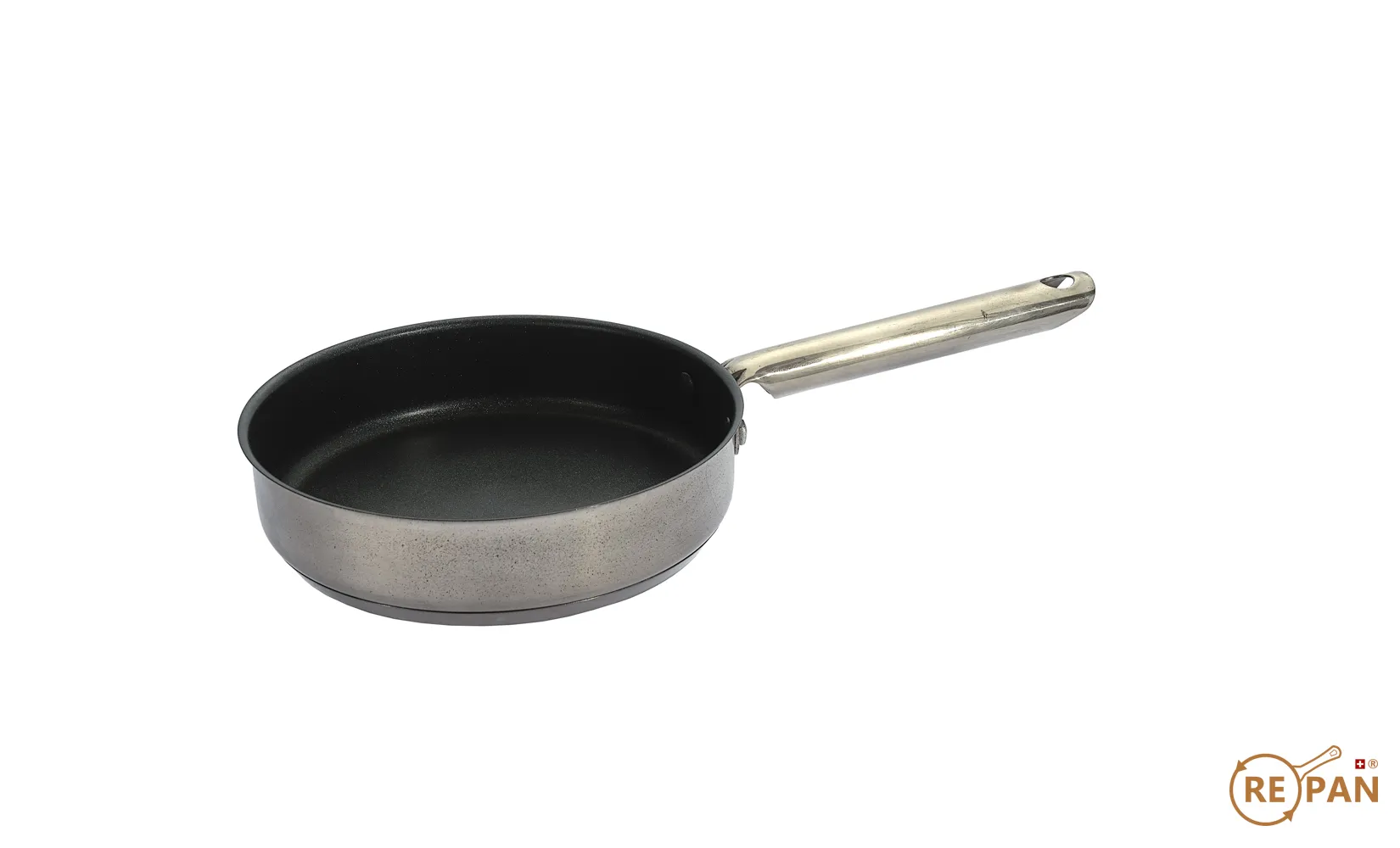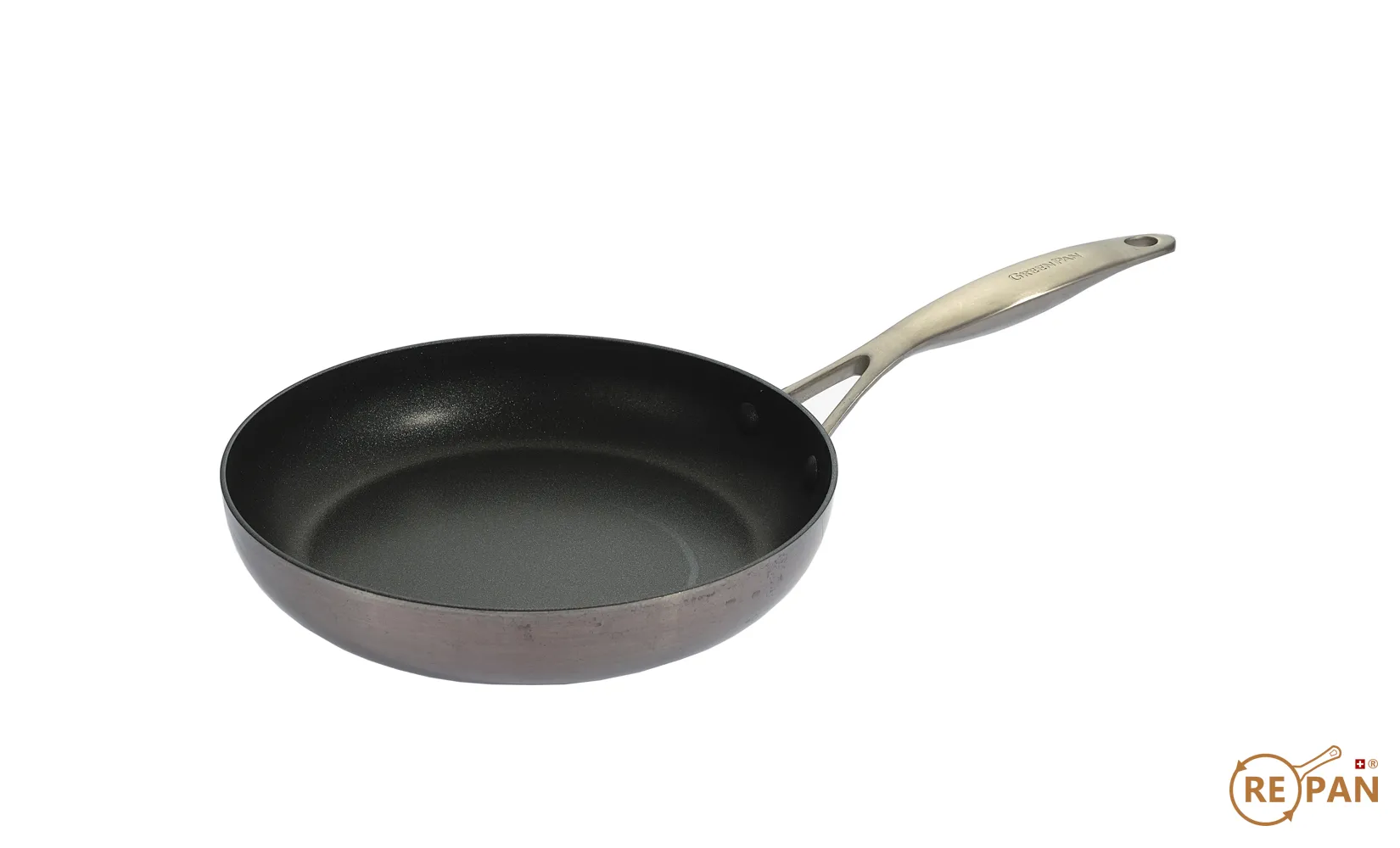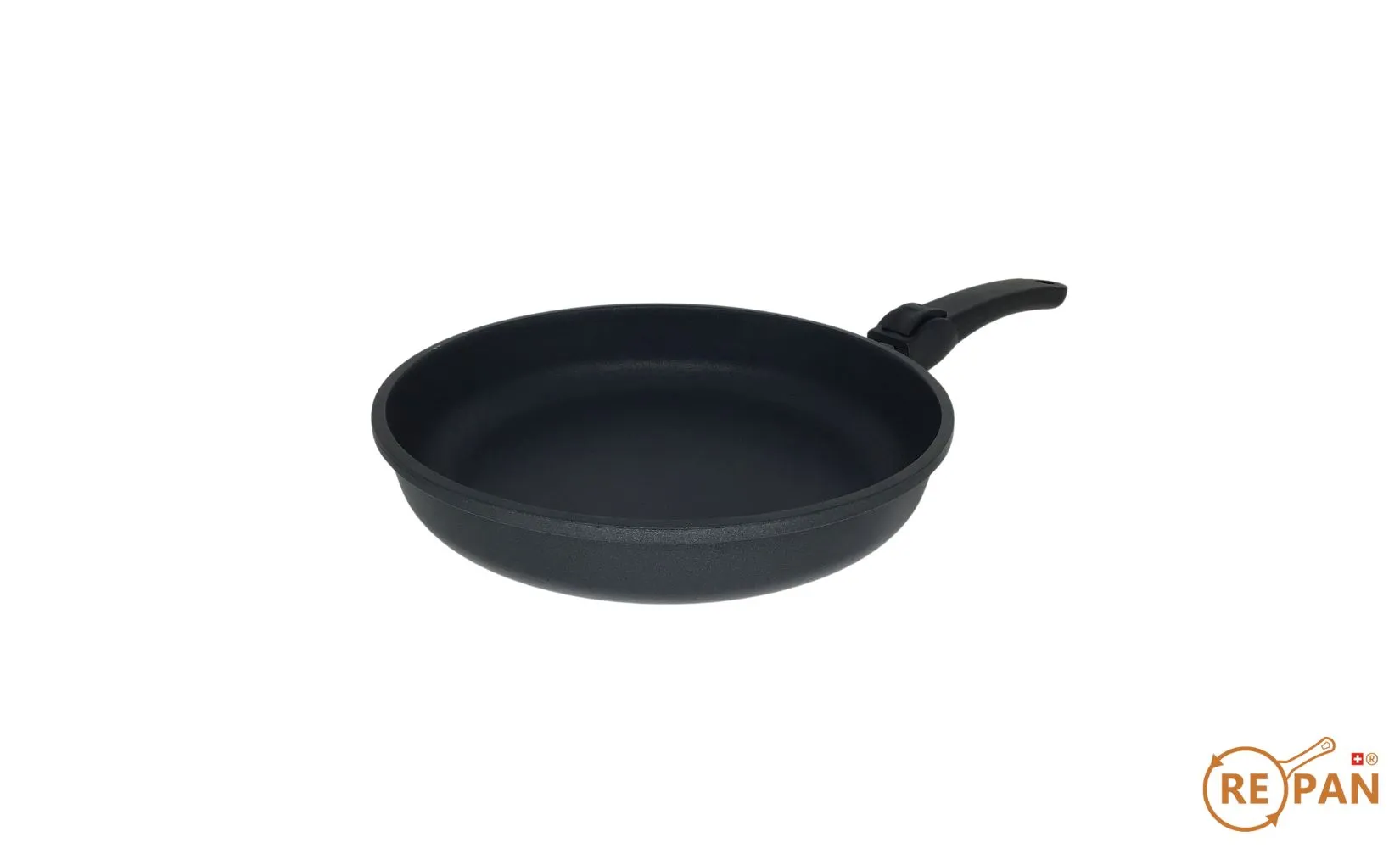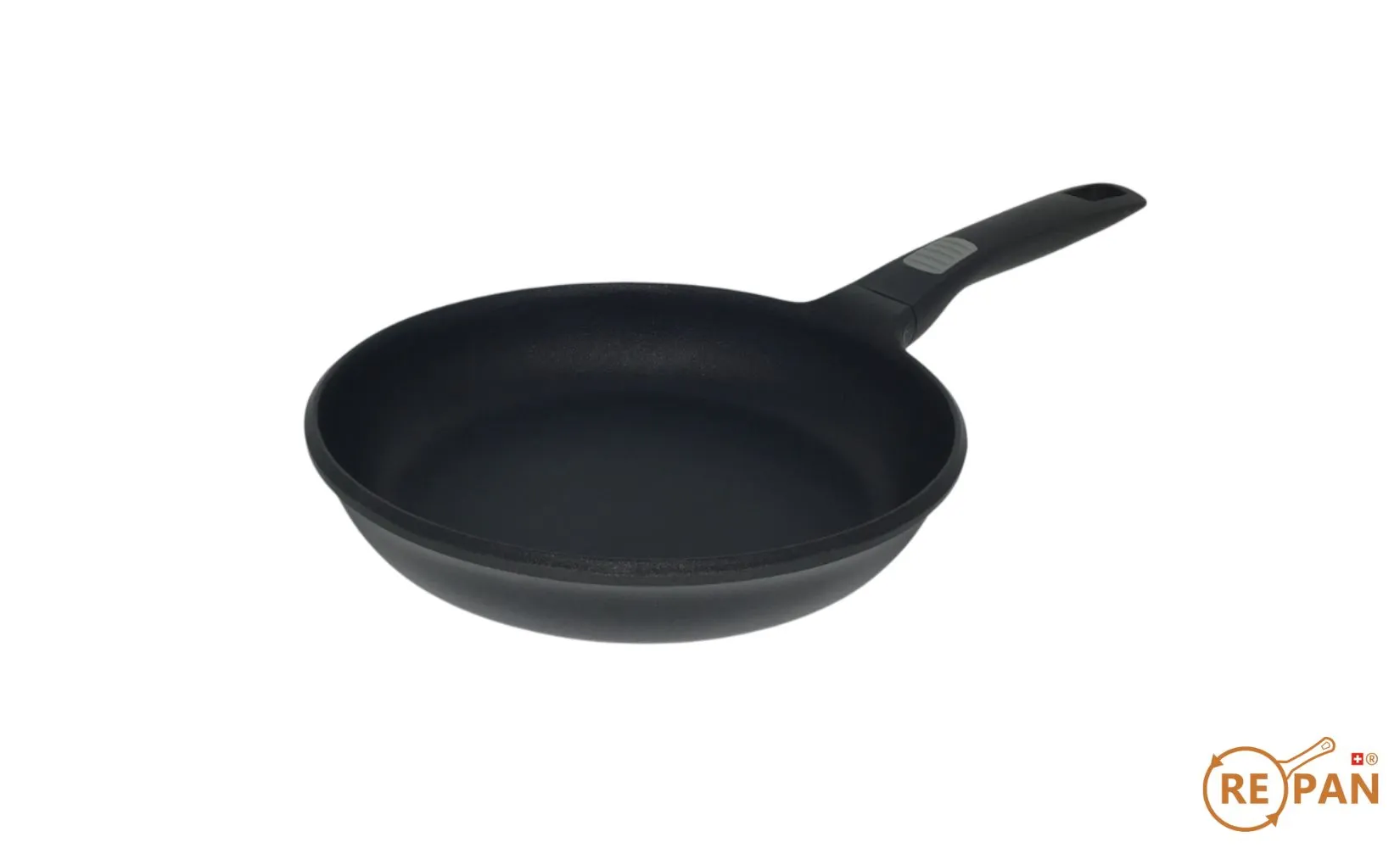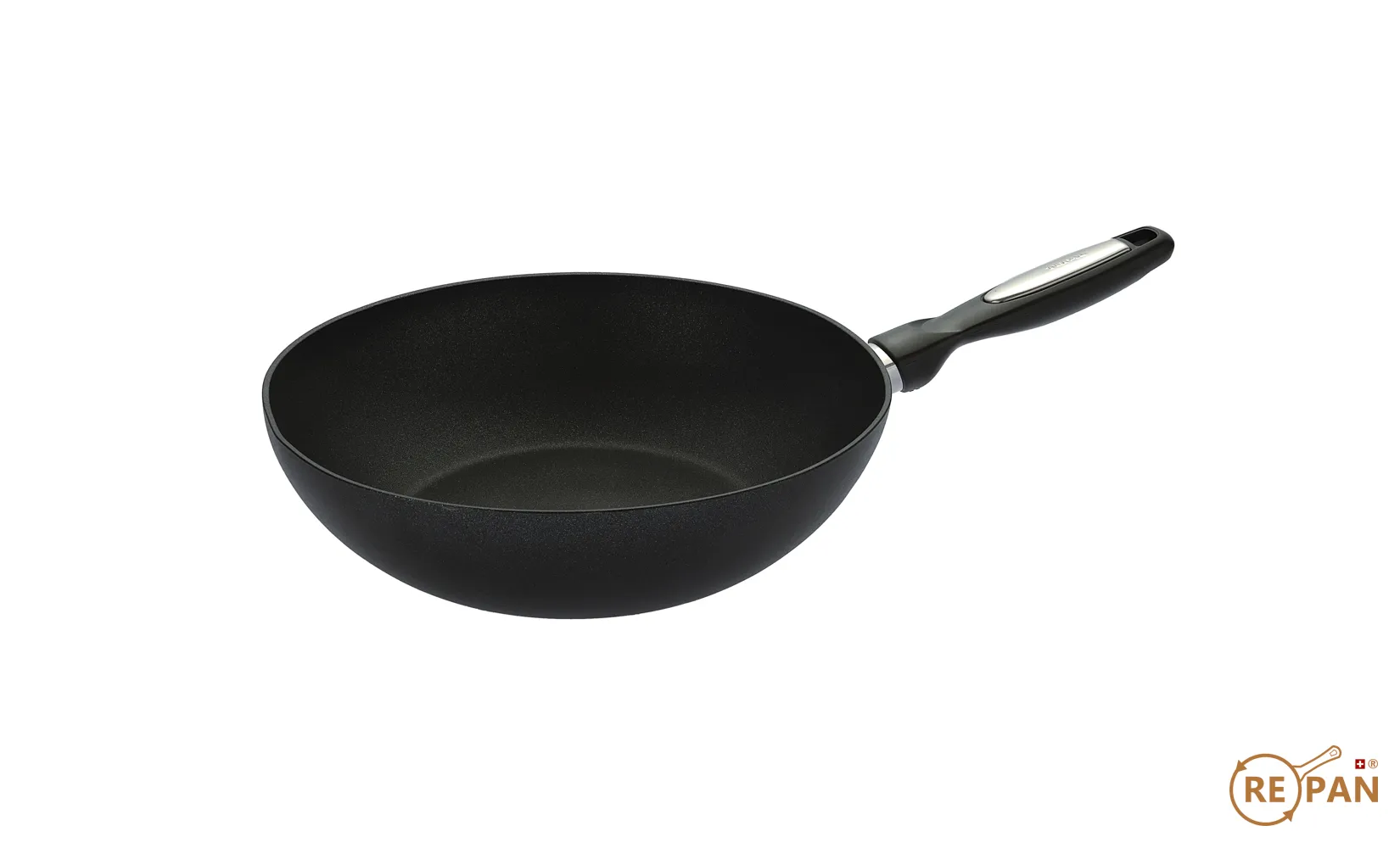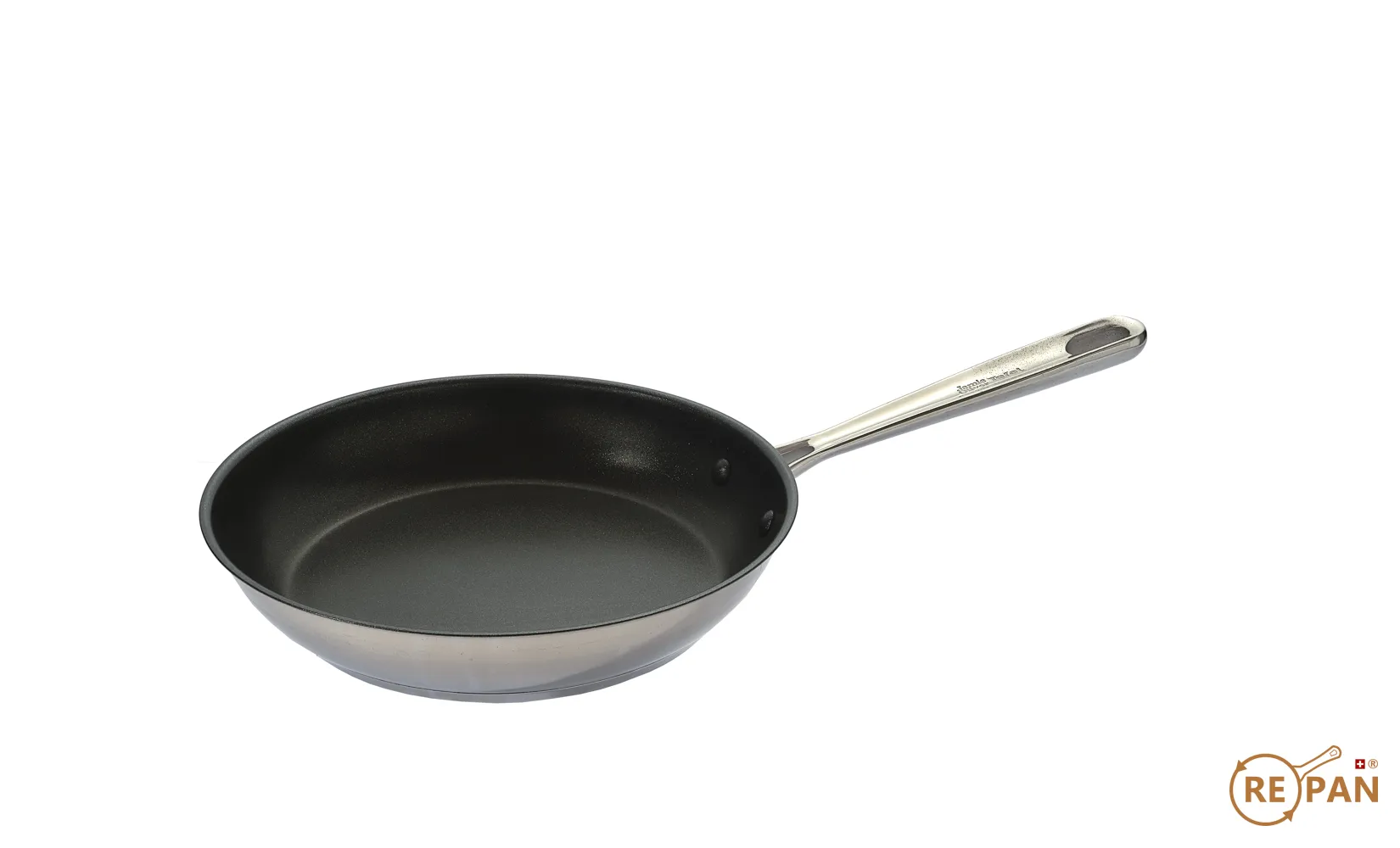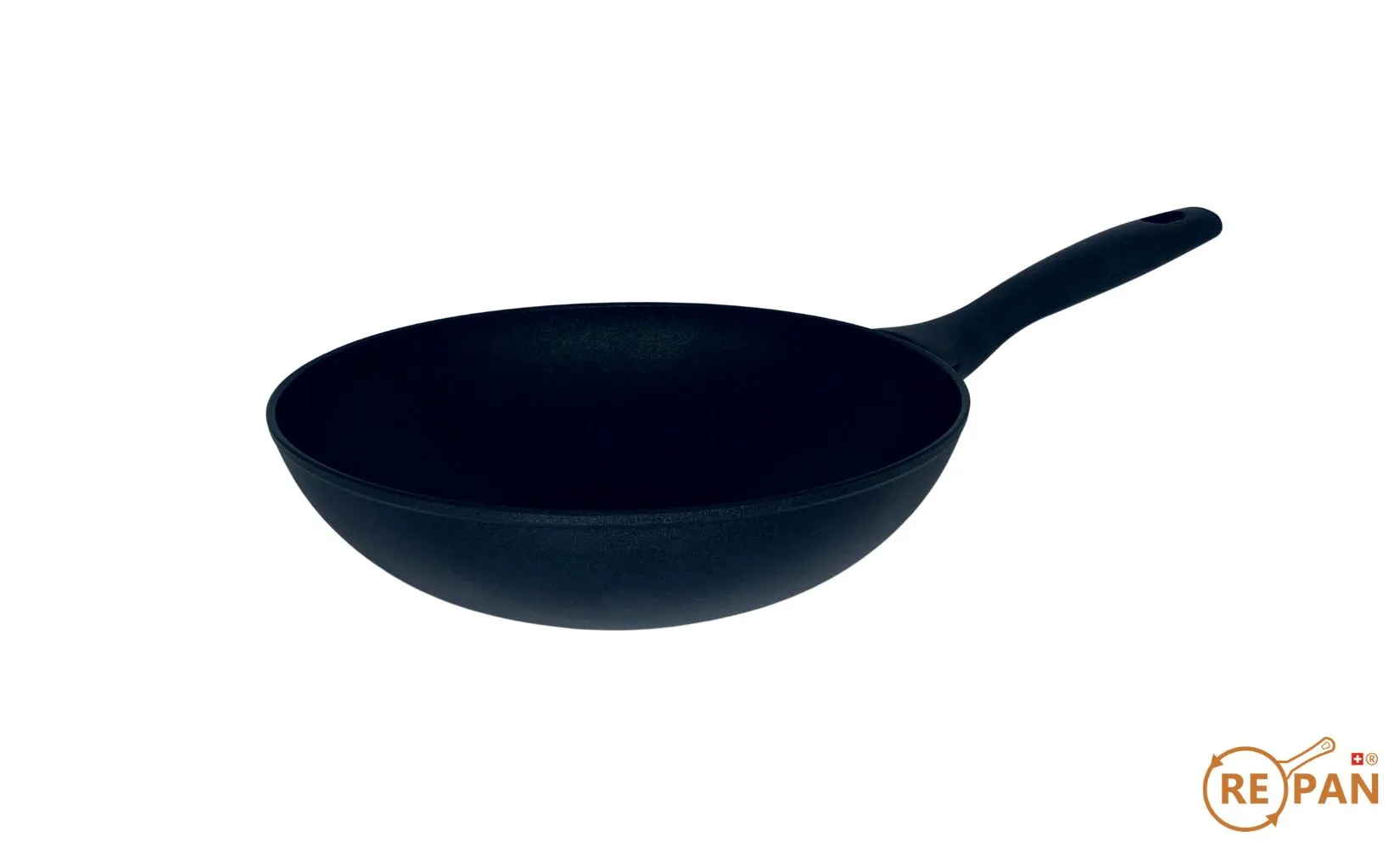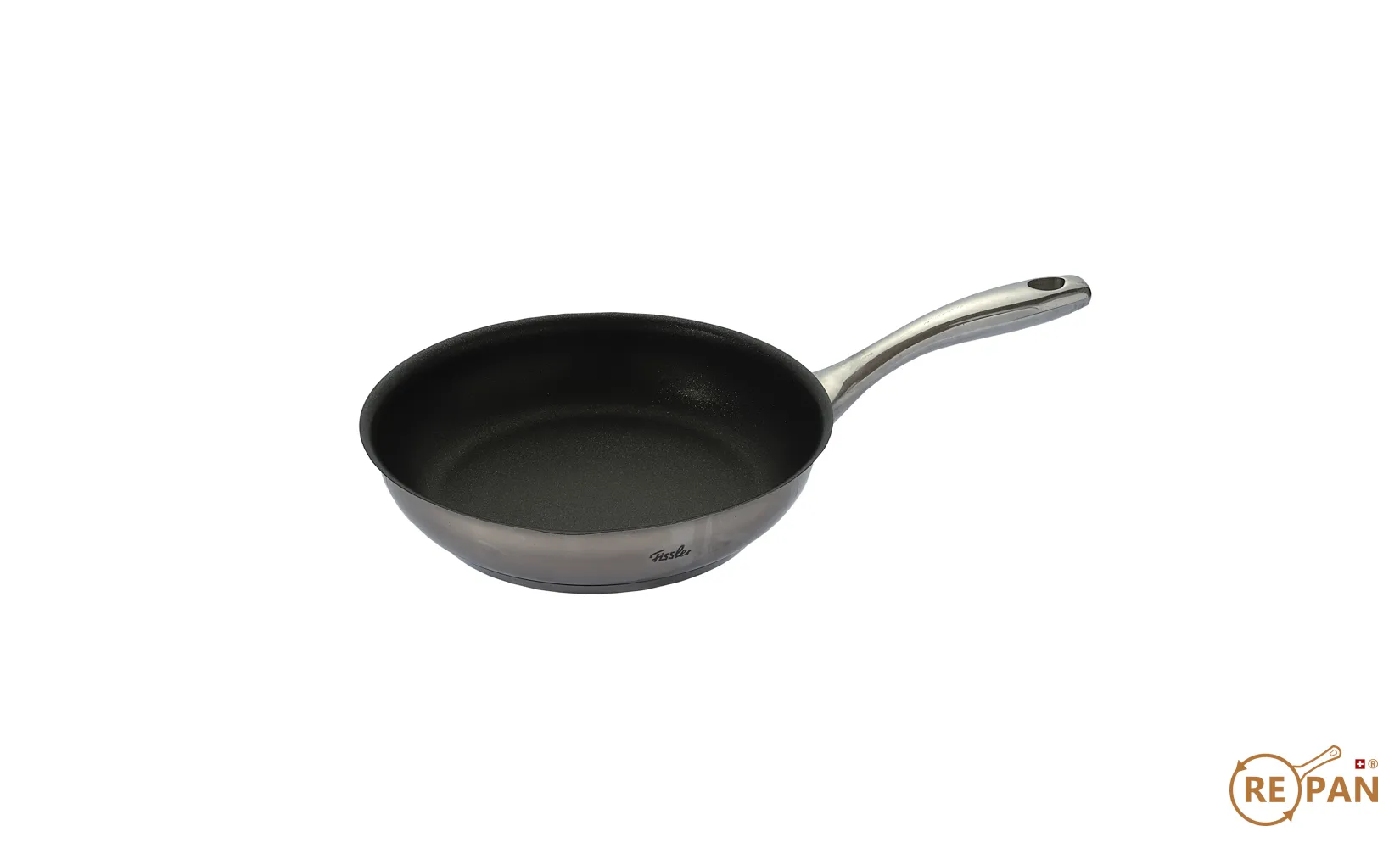Is Teflon toxic?
Teflon - we've all heard of it, but is it really as harmless as it seems? In this article, we will thoroughly examine the question "Is Teflon toxic?" and shed light on the most common opinions on the subject

What is Teflon?
Teflon is a synthetic polymer, i.e. a plastic. Also known as PTFE, the material is known for its non-stick properties. Discovered by chemist Roy Plunkett, it has made a name for itself in pans, cookware and even as a coating for clothing.
As RePan's first priority is (ecological) sustainability, we have also done some research and talked to experts about it. Our conclusion:
The toxicity of Teflon is a myth, but it has a history
1. the history of Teflon
Production of Teflon pans
PTFE-coated pans have been used all over the world every day since 1955. - Those were different times! And that's where the rumor that Teflon is harmful comes from. Imagine you have a material that hardly sticks to anything, resists oil, water, acids, bases and even heat - so how do you attach PTFE to a material? Or even metal as a different class of material? - Exactly, with a lot of chemistry.
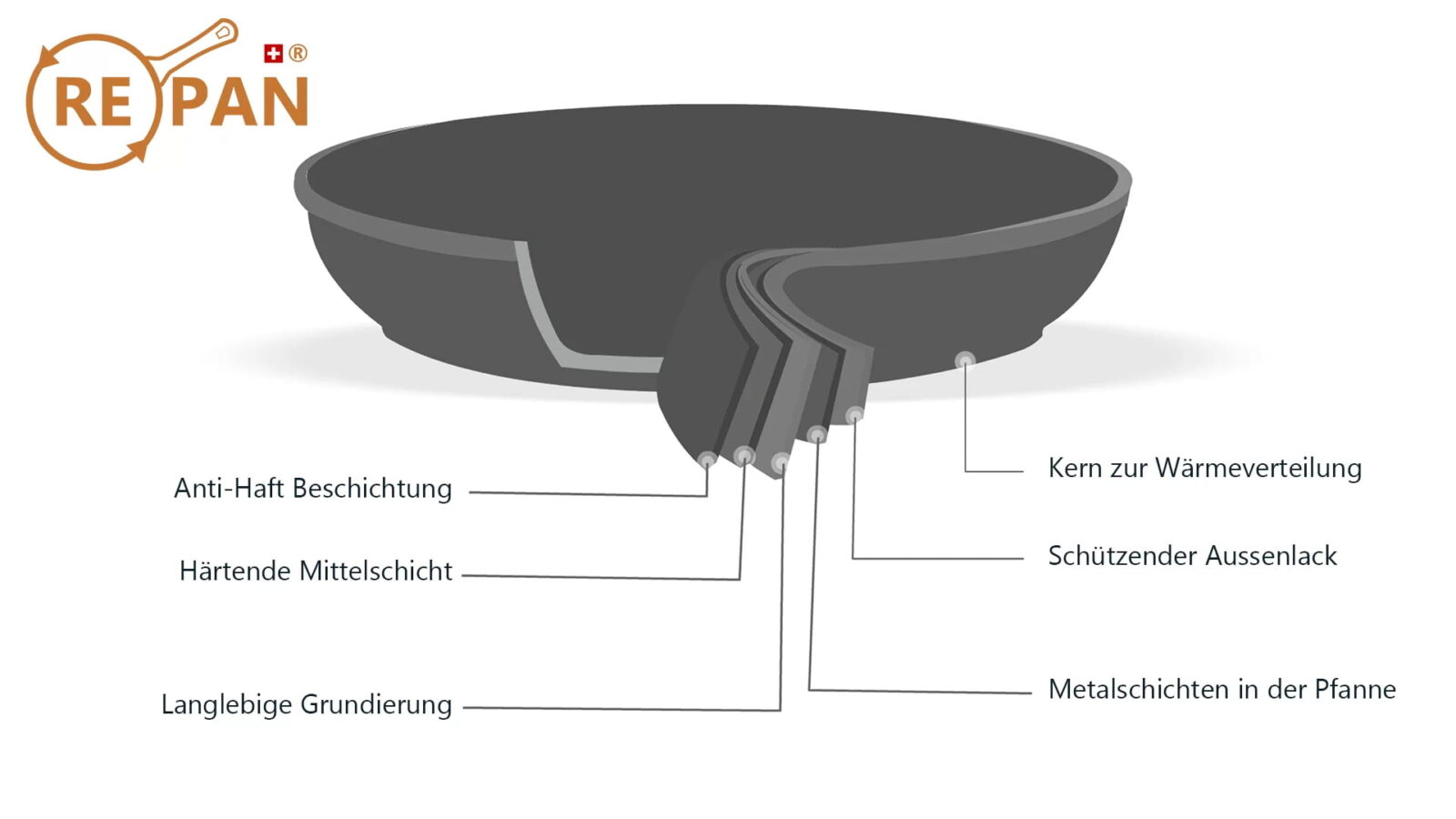
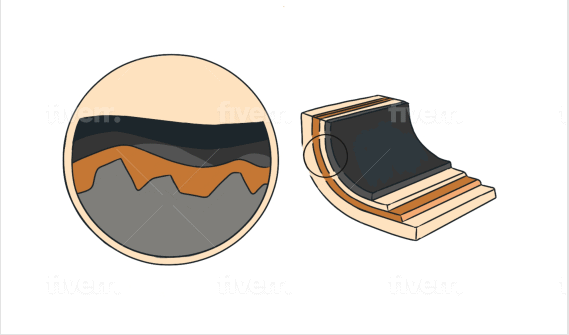
2. the toxicity of Teflon
PFOA, GenX, APEO - the culprits
It was not the material itself that was toxic, but the means of production used at the time. For example, perfluorooctanoic acid (PFOA) used to be a key ingredient in the production of Teflon. This substance has been banned in Europe for some time. PFOA and similar are not only harmful to health or carcinogenic, but have also been discharged directly into water bodies (hence the movie "Dark Waters 2019").
Today, the production of Teflon pans is no longer just chemistry, but a structural, step-by-step construction with strictly tested and much more simply filtered operating materials.
" PTFE is harmless. Even if scraped-off crumbs get into the food and are swallowed, this is not a problem. They do not react in the body and are simply excreted again." - just like sand, for example.
- Prof. Dr. Thomas Vilgis, physicist at the Max Planck Institute for Polymer Research in Mainz
But PFTE also has disadvantages
- But these are not so bad when put into perspective.
1.
Overheating and Teflon vapors
One of the main concerns with Teflon pans is overheating. However, overheating only occurs if the pan is left on the stove without any contents or oil. At temperatures above 300 degrees Celsius, Teflon begins to decompose and gives off dangerous vapors. These vapors can lead to so-called Teflon flu, which causes flu-like symptoms. The worst case ever recorded was two days of fever. The unfortunate man fell asleep while cooking (Shimizu T, 2012).
Common salt is more toxic than Teflon
A chemical comparison: If you overheat your pan without contents to over 300°C for a long time and breathe it in, you will get a fever. If you do this with everyday table salt (NaCl), for example, you will have produced much more toxic chlorine gases! Therefore, if you never overheat your pan when empty and forget about it for longer, you have nothing to fear.
2.
Teflon environmental impact
What is produced has to be disposed of and some of it inevitably ends up in the environment. This is where the advantage of inert Teflon becomes a disadvantage. PFTE does not react with food, our bodies or with nature - unfortunately, it breaks down very slowly.
But how relevant is the quantity in comparison? There are around 2 grams of PFTE in the coating of a pan. Even if fractions of them end up in nature, the molecules are still there - 2000-year-old Roman ceramic pots don't harm anyone in the ground, do they?
2g coating instead of 1kg metal
Melting down 1000g of metal with a lot of (fossil) energy to produce new pans in the Far East is much worse than a fraction of the old coating (2g) ending up in nature.
In addition: By removing an old coating, the abrasion can be specifically destroyed - this does not happen in normal metal recycling. This is another advantage of a new coating.
Makes sense, doesn't it?
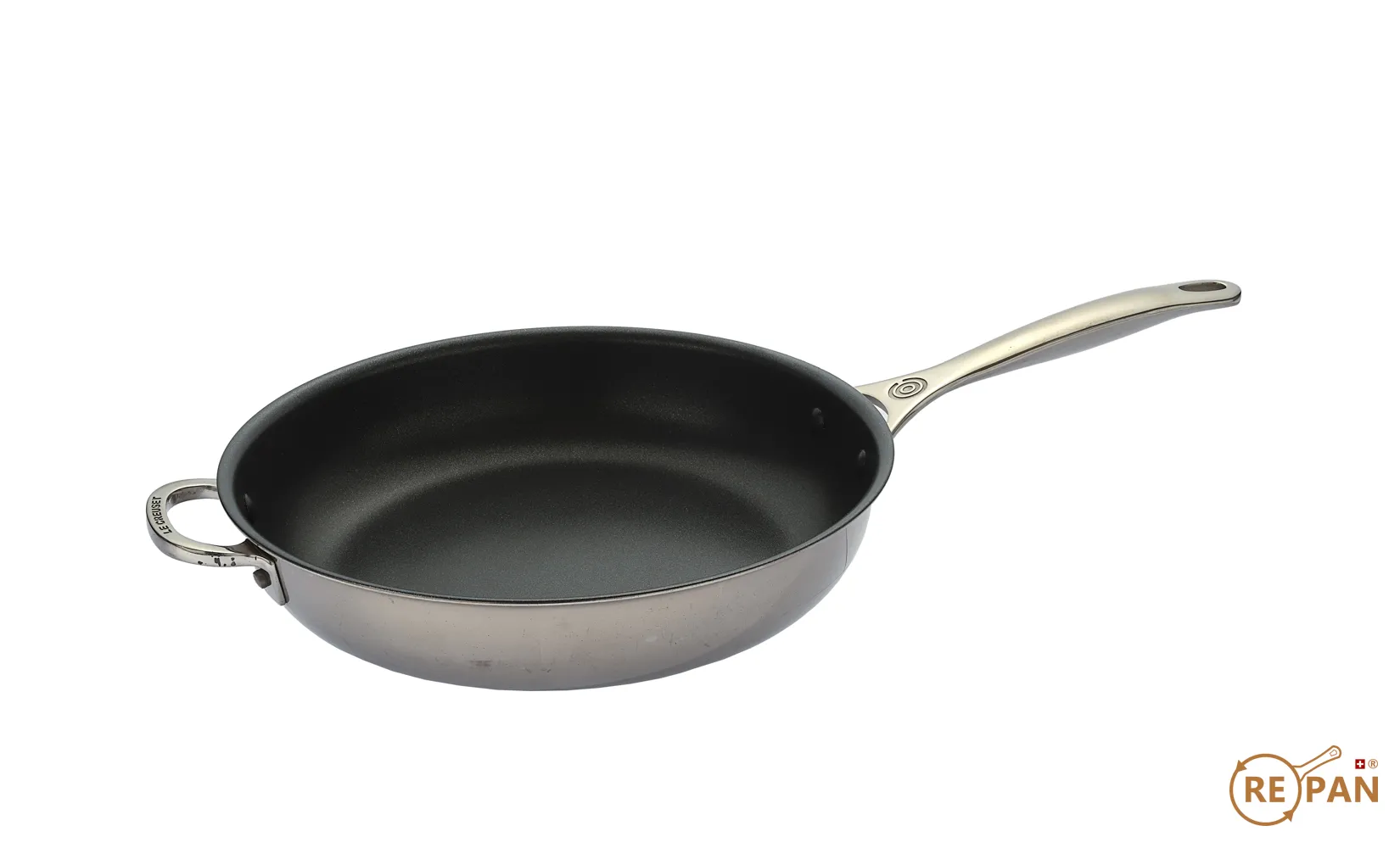
CHF 159.00 – CHF 189.00Price range: CHF 159.00 through CHF 189.00
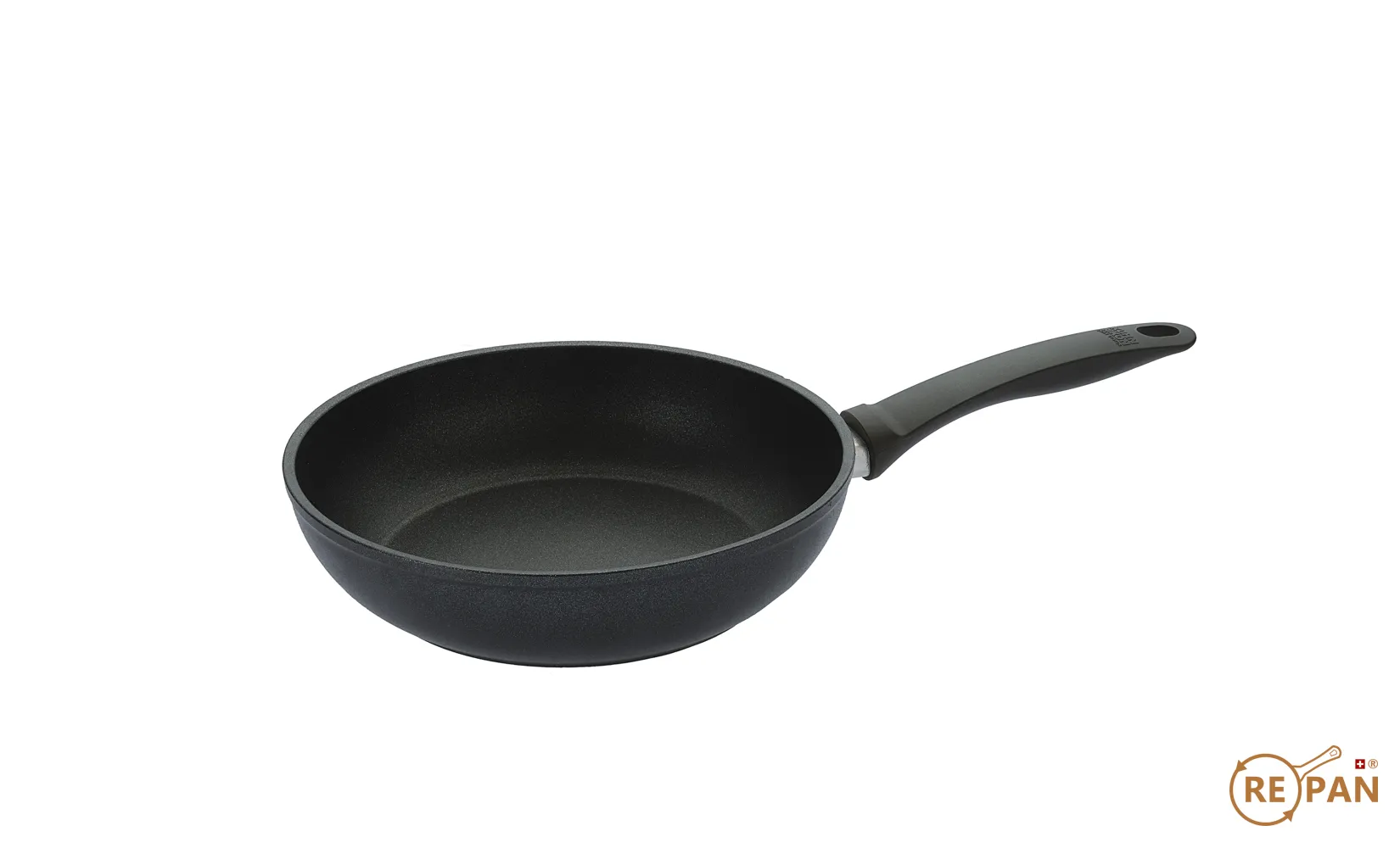
Innendurchmesser No selection 24 cm
CHF 79.00
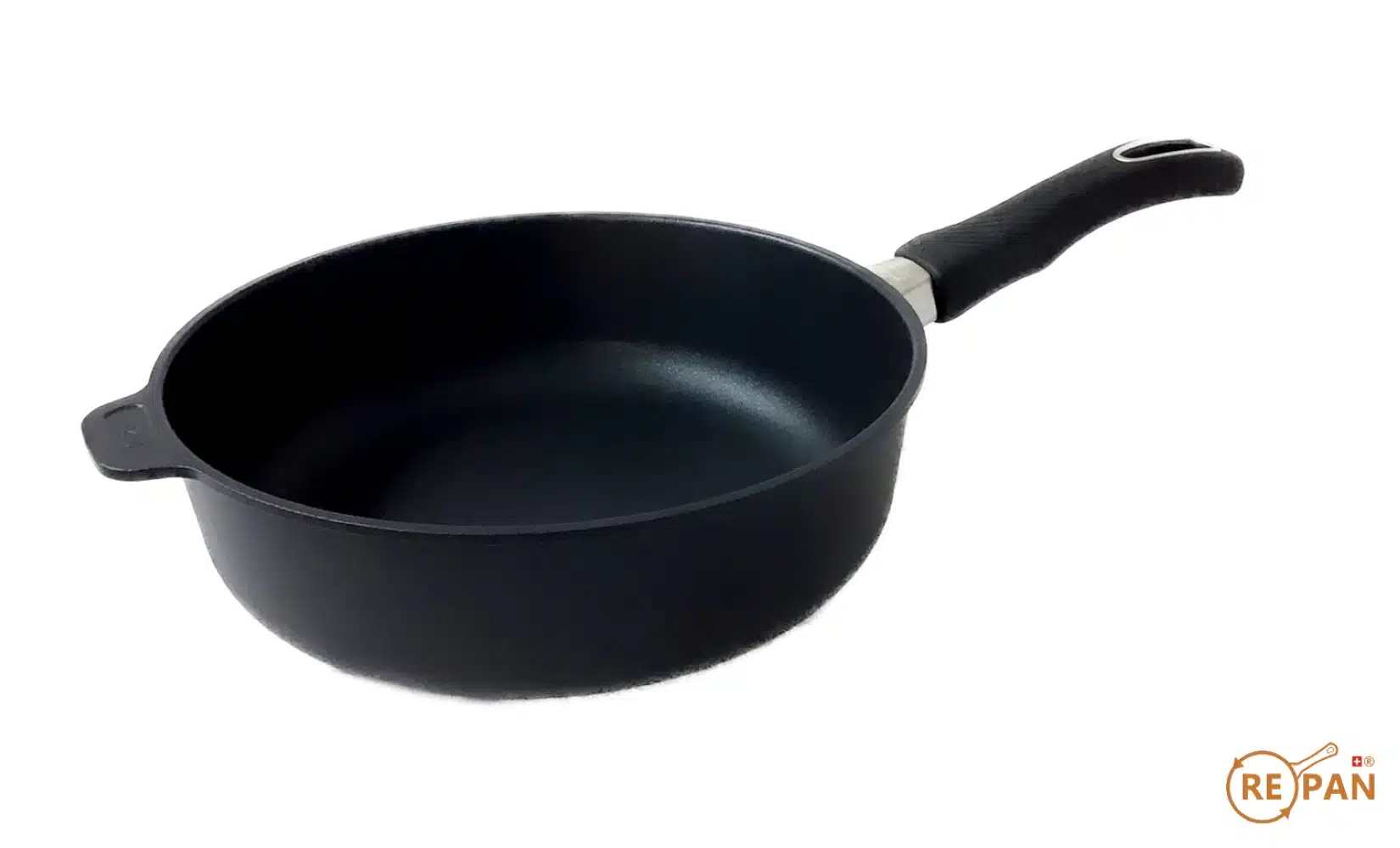
Innendurchmesser No selection 28 cm
Induktion No selection Inductive
CHF 89.00
PTFE coating alternative?
- A comparison
Stainless steel
Uncoated pans can possibly be used for a lifetime. They are very easy to clean with steel wool and do not scratch. The disadvantage is that a lot of oil is required for frying. Foods such as meat or vegetables stick more despite a well-preheated pan. You can forget about frying fish.
Cast iron
Bare cast iron can last a lifetime and also has a non-stick effect, provided you pre-treat the pans well with oil and let it burn in. In addition, they should not be cleaned with soap. Cast iron pans are heavier than other pans. For customers who are learning to use this type of pan, we recommend buying a cast iron pan from RePan. You can use it to prepare the crispiest rösti - but only with enough oil, of course.
"Ceramics"
We consider "ceramic" coatings to be the worse option:
Firstly, the non-stick effect is based on silicone oils, which wash out surprisingly quickly and the non-stick effect is lost as a result. That's why we find so many quasi-new ceramic pans in the scrap! Secondly, ceramic or silicone (also plastic) decomposes just as little in nature as PTFE. This is how we consume silicones. So what's better about it?
Enamel
This material is very hard. However, almost everything burns and can even chip. Unfortunately, nowadays cast iron pans are also coated with enamel - don't do that, because then the pan will last a lifetime!
Teflon
The PTFE coating is easy to clean and is an all-rounder. Fish, crêpes or a fried egg hardly ever burn. However, metal knives and spatulas must not be used when cooking because they would damage the non-stick coating. The same applies to kitchen sponges with a scouring side. Hand-washed pans last longer because the regenerating salt and the chemical substances contained in the dishwasher tabs dissolve the non-stick coating.
RePan is clearly the best and most relevant for recoating.
Re-coating instead of destroying
SEND IN PAN &
Re-coating
-
All brands, shapes, sizes & materials
-
Convenient pick-up anywhere in Switzerland
-
Ceramic-reinforced gastro coating - free from PFOA, APEO, GenX & BPA.
SELECT PAN &
Order
-
If you send in pans, they will be missing at home. That's why we sell newly coated pans from stock!
-
Choose, order & return old ones
-
400 different pan models from stock
-
Cheaper or more durable than original
You will be notified of the acceptance deadline for the recoating service:
